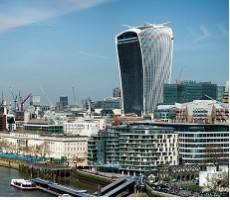September 11, 2015
New analysis claims to reveal resurgence of long hours culture 0
 The Government is being urged to reassess its plans to request an opt-out from the EU Working Time Directive, when it seeks to renegotiate the terms of the UK’s membership of the EU. The Directive stipulates a 48 hour working week, which the Government has argued is stifling competitiveness and flexibility. According to research by the TUC, the number of people working excessive hours has risen by 15 per cent since 2010, following more than a decade of decline in long hours working, with the number of employees working more than 48 hours per week reaching 3,417,000 – up by 453,000 since 2010. The union says many people are working unpaid overtime and at least a million report that they want to cut their excessive hours. The return of the long hours culture makes people feel pressured to ‘opt-out’ from the 48 hour limit as a condition of employment as currently, individual opt-outs are allowed by law.
The Government is being urged to reassess its plans to request an opt-out from the EU Working Time Directive, when it seeks to renegotiate the terms of the UK’s membership of the EU. The Directive stipulates a 48 hour working week, which the Government has argued is stifling competitiveness and flexibility. According to research by the TUC, the number of people working excessive hours has risen by 15 per cent since 2010, following more than a decade of decline in long hours working, with the number of employees working more than 48 hours per week reaching 3,417,000 – up by 453,000 since 2010. The union says many people are working unpaid overtime and at least a million report that they want to cut their excessive hours. The return of the long hours culture makes people feel pressured to ‘opt-out’ from the 48 hour limit as a condition of employment as currently, individual opt-outs are allowed by law.









 The recent growth in prime headline office rents has continued across the UK’s regional
The recent growth in prime headline office rents has continued across the UK’s regional 


 Large firms that occupy several separate floors in a prime office may need to pay tens of thousands of pounds more in rates, property managers have been warned. The decision by the UK Supreme Court on business rates in shared office buildings will lead to higher fees for many businesses in Scotland, according to commercial property experts at Colliers International. The firm says that the case of Woolway Valuation Office v Mazars, in which the Supreme Court held that businesses occupying space across several floors should pay separate rates for each, will lead to changes in valuations across the country that will cost firms millions of pounds. Up until now, such arrangements were charged as a “single occupation” and benefited from economies of scale. Paying for two separate sets of rates is likely to be more expensive, and the court decision even allows for the changes to be implemented retrospectively.
Large firms that occupy several separate floors in a prime office may need to pay tens of thousands of pounds more in rates, property managers have been warned. The decision by the UK Supreme Court on business rates in shared office buildings will lead to higher fees for many businesses in Scotland, according to commercial property experts at Colliers International. The firm says that the case of Woolway Valuation Office v Mazars, in which the Supreme Court held that businesses occupying space across several floors should pay separate rates for each, will lead to changes in valuations across the country that will cost firms millions of pounds. Up until now, such arrangements were charged as a “single occupation” and benefited from economies of scale. Paying for two separate sets of rates is likely to be more expensive, and the court decision even allows for the changes to be implemented retrospectively.
 The number of firms planning to expand in London is at its highest level (50 percent) since 2012, though retaining employees and improving the capital’s infrastructure remain key concerns. According to the re-launched
The number of firms planning to expand in London is at its highest level (50 percent) since 2012, though retaining employees and improving the capital’s infrastructure remain key concerns. According to the re-launched 
 Newly published research
Newly published research
 A new meta analysis compiled by researchers from Harvard Business School and Stanford University raises questions about the way Government and organisational policies designed to tackle the problems of work related health costs in the United States have largely ignored the health effects of ‘psychosocial workplace stressors’ such as high job demands, economic insecurity, and long work hours. The analysis of 228 existing studies assessed the effects of ten workplace stressors on four specific health outcomes. The researchers claims that job insecurity increases the odds of reporting poor health by about 50 percent, high job demands raise the odds of having a diagnosed illness by 35 percent, and long work hours increase mortality by almost 20 percent. They argue that any policies designed to address these issues should account for the health effects of the workplace environment.
A new meta analysis compiled by researchers from Harvard Business School and Stanford University raises questions about the way Government and organisational policies designed to tackle the problems of work related health costs in the United States have largely ignored the health effects of ‘psychosocial workplace stressors’ such as high job demands, economic insecurity, and long work hours. The analysis of 228 existing studies assessed the effects of ten workplace stressors on four specific health outcomes. The researchers claims that job insecurity increases the odds of reporting poor health by about 50 percent, high job demands raise the odds of having a diagnosed illness by 35 percent, and long work hours increase mortality by almost 20 percent. They argue that any policies designed to address these issues should account for the health effects of the workplace environment.















September 10, 2015
Five ways in which your colleagues might be driving you completely nuts 0
by Mark Eltringham • Comment, News, Wellbeing, Workplace
(more…)